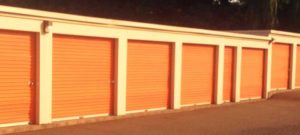Why Video Storage Matters
It’s a catch-22: Clients want to monitor their businesses and lower their risk with the latest smart technology. But these “cool tools” take up a lot of bandwidth and storage. That’s why we recommend planning for more storage growth than what is needed today. Consuming all your bandwidth early on can happen easily if you add additional security cameras, upgrade to higher-resolution equipment, or change how long you want the video security footage stored. A security consultant can help you plan accordingly so this doesn’t happen.
But exploring your options for video storage depends on the answer to questions like: “How long do security cameras keep footage?” You have all of this security taking up room – for how long will this CCTV footage be kept?
The short answer to the question “how long does the average security camera store footage?” is this: The most common length of time for storing security camera footage is 30 to 90 days. This is true for hotels, car dealerships, retailers, and just about any other business. While you can store video footage for longer if you want, it can become prohibitively expensive from a file size viewpoint and will be minimally useful the older the footage gets.
However, there are exceptions – casinos and banks typically store footage for a minimum of 6 months due to industry standards and regulations.
That’s the short answer. If you want a long answer to the question about how long security cameras keep footage, then keep reading.
Options for Video Storage
IP (Internet Protocol) video security cameras are designed with the cloud in mind. These cloud-based security camera systems for business give you access to real-time video feeds on any digital device, such as your smartphone. Since footage is being stored on the cloud, your storage options are infinitely more scalable.
By comparison, older CCTV cameras are limited to physically storing video recordings onsite, either on hard drives or on physical video tapes. We’ll get into questions of analog CCTV camera footage storage vs. online camera footage storage later in this blog.
When you’re looking at video storage you have several questions to answer:
-
Is it safe to store video footage on your on-premises computer or server? This is common in smaller retail establishments.
-
Do you need more than a few days of data?
-
Would it be safer to permanently store data off-site?
-
Do cloud capabilities offer your business more options that lessen your risk?
If you’re using an IP security camera instead of an older CCTV analog model, you have several options available for video storage:
-
IP Camera SD Card Storage: If you don’t want to pay for cloud storage or your Internet connectivity is spotty, IP camera SD card storage is good for saving motion-triggered footage. It’s a good option if you don’t need 24/7 storage.
-
NVR/DVR Storage: If you need to record constantly, you can also link multiple IP cameras together and store the video on an NVR or DVR with a built-in hard drive. You’ll need to back these storage units up regularly if you want to save the footage long-term.
-
IP Camera FTP Storage: Lets you upload and save surveillance images and videos to a network platform. You can access a remote server by using the cloud, or you could have the server located on-premise if you believe it can be kept safe.
-
IP Camera Cloud Storage: A great alternative to these options — as long as you have a solid Internet connection. Even remote construction sites without electricity can use a 4G or 5G wireless connection to leverage this option.
There are other options for cloud-based security camera systems for business out there, but they are all generally preferable to the old analog video storage options.
The Problem with Analog Video Storage
Analog tech has been around for years and is less expensive, but the technologies do not have the same functionality today’s AI-driven IP security cameras have.
Analog camera footage is stored in tapes and film reels, rather than in data centers. This footage is rather durable, but it isn’t infinite; it’s estimated that VHS-style tapes will degrade about 10% every decade.
However, even though analog CCTV camera storage capacity in days can last decades with minimal degradation, it has one major downside: You need someplace to put the tapes. One single hard drive can hold the equivalent of dozens if not hundreds of VHS tapes. You’ll need a very big storage room for this, if you want to keep VHS security tapes long enough for information degradation to matter.
There are many other downsides to analog CCTV cameras compared to IP cameras that aren’t just about how many days CCTV footage is kept, including:
-
Low frame rate
-
Poor image quality
-
Limited storage options
-
Less coverage
How Long Do Security Cameras Keep Footage?
Most security camera (CCTV) footage is stored for 30 to 90 days. This is true for hotels, retail stores, supermarkets, and even construction companies. Banks keep security camera footage for up to six months to comply with industry regulatory requirements. Some state casino regulations require the data to be held for six months to a year.
This is, of course, dependent on the management of any given establishment. If the manager of a given Wal-Mart, for instance, wants to keep her store’s security camerage footage for five years, she could opt to do so as long as she was paying for the extra storage space.
So, how long does CCTV footage last? The answer typically doesn’t depend so much on technical limitations as much as it does on policy.
There are basically three types of security video camera recording options:
-
24/7 consistent video recording.
-
Scheduled recording for different times of the day.
-
Perimeter motion alerts can be set up to detect specific types of motion. (Like if activity occurs past a specific geographic demarcation line.)
The recording option you select makes a difference in the amount of storage you need. But that’s just one consideration.
So, before you can determine how many days CCTV footage is kept, you first need to think about how much information you want to record. When determining how many hours or days a video surveillance camera can record information, there are a variety of technical considerations:
-
The resolution of the camera. Higher image quality uses more bandwidth, which shortens the time the camera will record information.
-
Compression helps. Video compression is a technology process that reduces the size of the video to increase the amount of camera storage capability.
-
The number of cameras you have will change how much storage you need.
-
The storage space itself will affect how long you can store footage.
There is complex math involved, along with other technical variables, so determining your storage needs is something you should discuss with your security camera vendor.
Pro-Vigil Video Storage Options
Determining the type of camera, the number of units, and how long the data will be stored are just a few of the considerations Pro-Vigil can discuss with your team. During our consultations, we talk frequently about:
-
Does your security system capture the details you need?
-
Do you need night vision?
-
Do you want real-time monitoring capabilities, or are there locations where you can allow the smart camera to alert on specific motion?
So, the best answer we can give to the question, “How long do security cameras keep footage?” is “How long do you need to store your footage?” The answer is complex and must take into account the needs of the customer and the technologies you select to get the job done.
No matter your needs and requirements, our goal is your goal: to keep your business safe by adding the CCTV camera footage storage and recording capabilities your organization requires. Talk with our team today to craft a plan for your unique security needs. Pro-Vigil’s advanced video storage solutions are designed to be scalable and customizable, ensuring your security system grows with your business while maintaining easy access to critical footage.
Pro-Vigil also offers flexible storage solutions, including cloud-based and on-site options, to ensure your footage is accessible and secure whenever you need it.
FAQs
Most businesses store the footage captured by their CCTV security cameras for a length of time between 30 and 90 days. However, certain industries, like casinos and banks, may store security footage for a minimum of 6 months due to industry standards and regulations.
Ultimately, CCTV camera storage capacity in days isn’t the limiting factor, it’s how much you want to pay for storage.
The larger the file size, the more storage you will need to pay for in order to keep footage for longer. The amount of data is determined by things like:
- How long the camera is active every day (A video camera that runs from 6 pm to 6 am every day will require half the storage of one that runs 24/7, for example)
- What resolution you record at
- If your video camera detects and records things like audio as well as video
- How many cameras you have on your property
Unless explicitly stored for long-term retention, retrieving footage from 2 years ago is highly unlikely. Most systems overwrite old data once storage is full.
Yes, most security systems are set to automatically overwrite old footage when storage reaches capacity. Cloud-based systems may offer extended storage options.
In some cases, forensic recovery techniques may help retrieve deleted footage, but success depends on the system and whether data has been overwritten.
Most modern systems have an interface where you can view storage capacity and how much footage is available. Access depends on whether it's an NVR/DVR, cloud-based, or SD card system.










